Date: 2023-07-31
The AUST Civil Engineering Society (ACES) organized a seminar on "Climate Change Impacts, Scenarios, and Vulnerability of Bangladesh" on May 21, 2023, at the Seminar Room of the Honorable Vice-Chancellor, Ahsanullah University of Science and Technology (AUST). The event aimed to shed light on the pressing issues related to climate change and their implications for Bangladesh.
The seminar was graced by the presence of esteemed guests, including the Honorable Vice-Chancellor of AUST, Prof. Dr. Muhammad Fazli Ilahi, who attended as the Chief Guest, and the Pro-Vice-Chancellor of AUST, Prof. Dr. Mahbubur Rahman, who participated as the Special Guest. Dr. Ainun Nishat, a renowned Professor Emeritus from BRAC University, served as the keynote speaker, adding significant value to the event. Notable attendees also included Prof. Dr. Sharmin Reza Chowdhury, Head of the Department of Civil Engineering at AUST, Prof. Dr. Md. Mahmudur Rahman, Dean of the Faculty of Engineering at AUST, along with faculty members and 4th-year students from the Department of Civil Engineering.
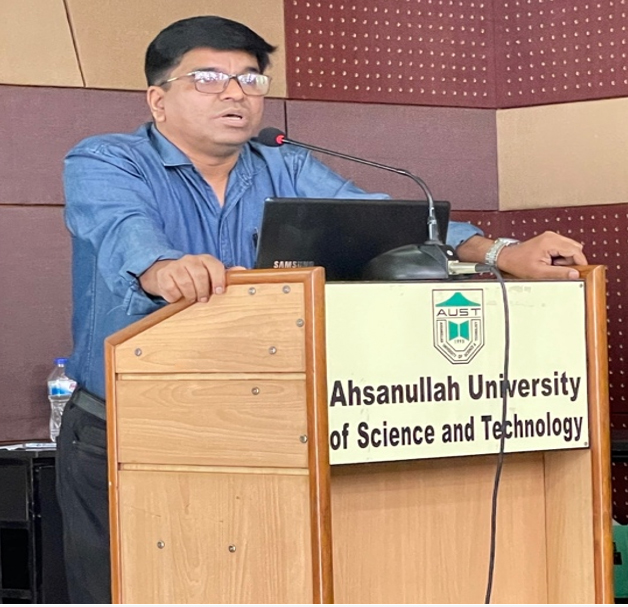
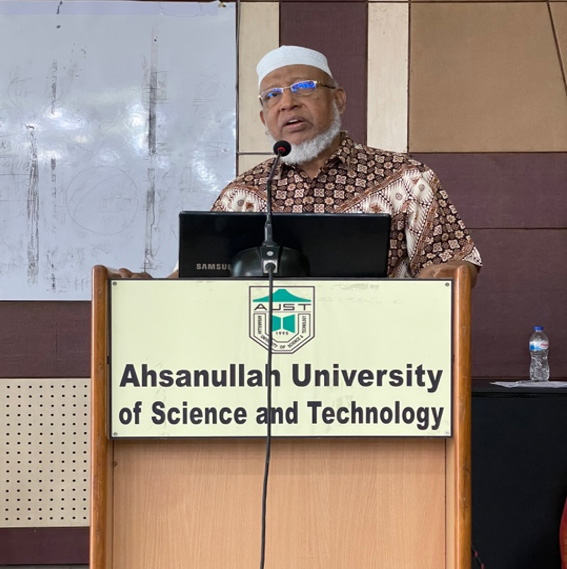
The seminar's highlight was undoubtedly the keynote speech delivered by Dr. Ainun Nishat, Professor Emeritus from BRAC University. Dr. Nishat's extensive knowledge and expertise in the field of climate change brought immense value to the seminar. He eloquently and comprehensively discussed a range of pressing issues related to climate change, specifically focusing on their impact on Bangladesh.
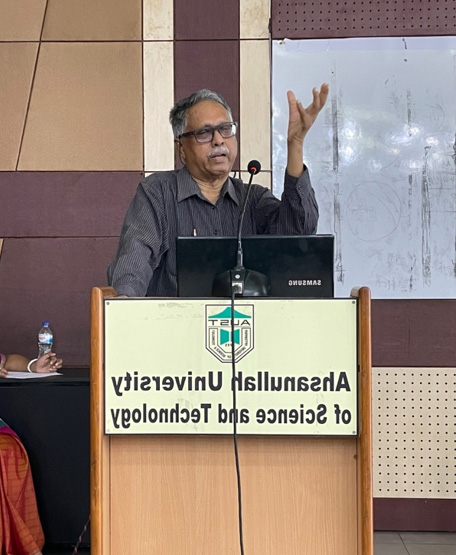
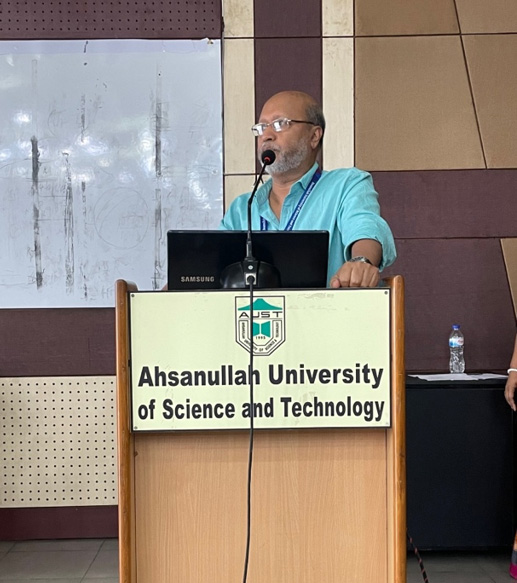
During his keynote address, Dr. Nishat highlighted the various challenges posed by climate change in Bangladesh. He emphasized the looming threats of food shortages and the potential consequences of mass migration as a result. The vulnerability of livelihoods, particularly for marginalized communities, was another crucial aspect addressed. Dr. Nishat shed light on the alarming increase in the intensity and frequency of natural disasters in Bangladesh, including cyclones, floods, and storms, underscoring the need for proactive measures to mitigate their impact.
Moreover, Dr. Nishat drew attention to the loss of biodiversity and the overall ecosystem, emphasizing the delicate balance that is being disrupted by climate change. He stressed the severe implications for health security, including the spread of diseases and the heightened vulnerability of certain populations. The keynote speaker also highlighted how climate change adversely affects the process of sustainable development, hindering progress in economic, social, and environmental aspects.
He emphasized the urgent need for the preservation of the environment and ecology, emphasizing their critical role in mitigating the adverse effects of climate change. The potential migration of people from the southern region of Bangladesh due to changing environmental conditions was another thought-provoking aspect highlighted by the keynote speaker.
Dr. Nishat concluded his speech by presenting the potential consequences of different temperature increase scenarios, namely 2°C, 4°C, and 6°C. This projection provided a stark reminder of the severity of climate change impacts and underscored the urgency of action.
At the end of the presentation, Prof. Dr. Muhammad Fazli Ilahi, Honorable Vice-Chancellor, AUST, handed over crests to the guest speaker.
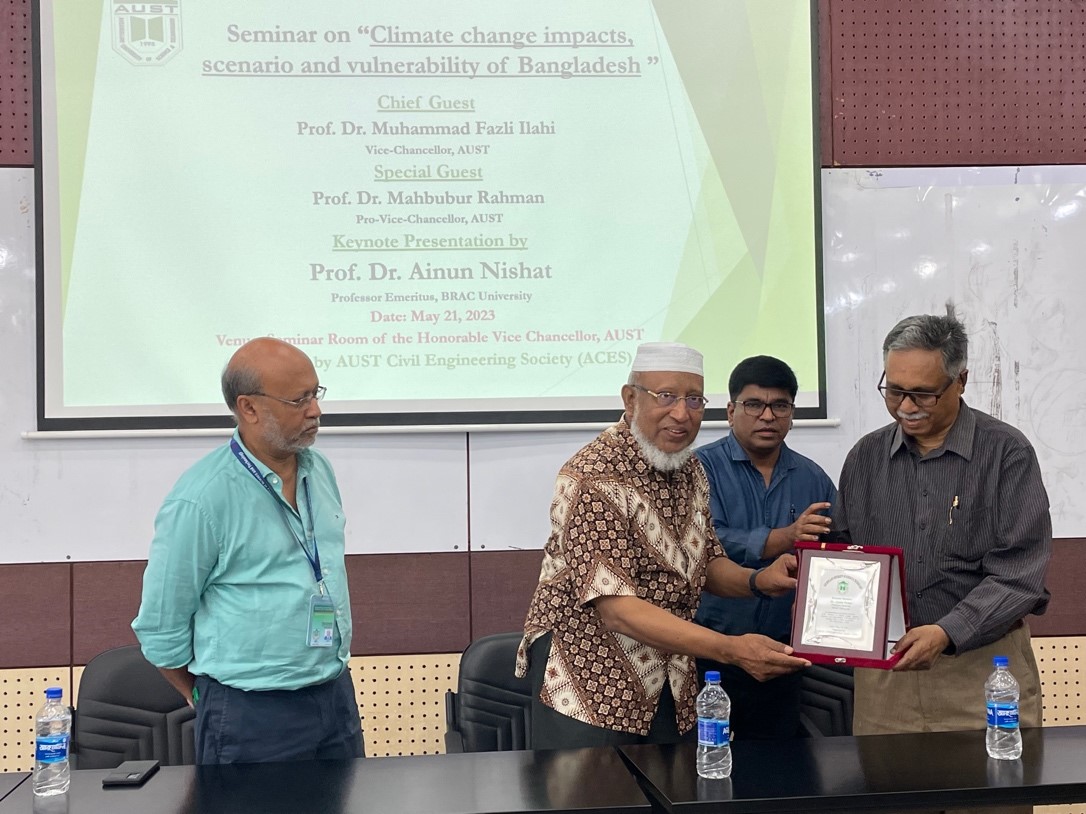
The seminar proved to be an invaluable platform for students and faculty members to enhance their understanding of the complex challenges posed by climate change in Bangladesh. It highlighted the importance of collaborative efforts from various stakeholders to address these issues effectively.